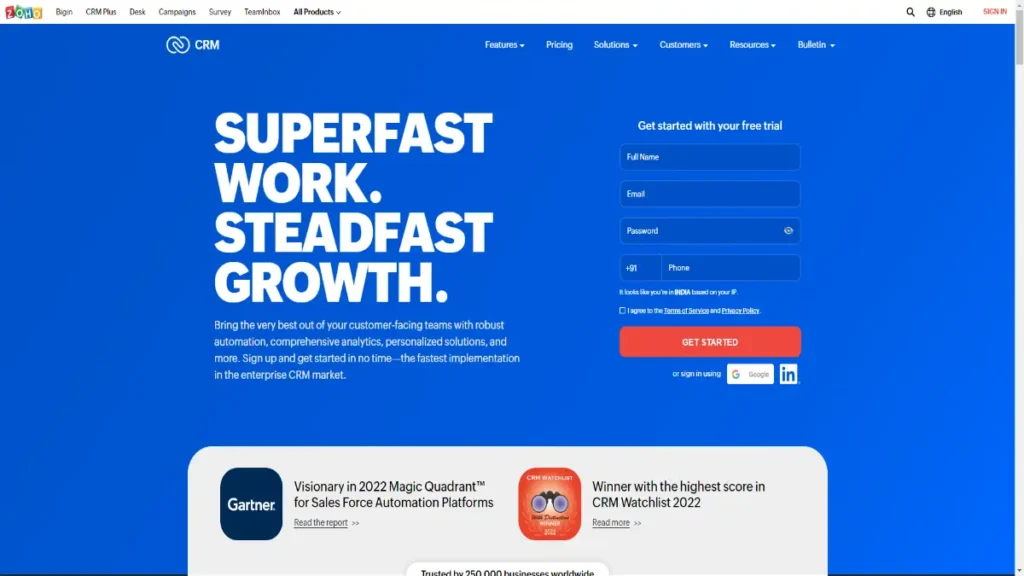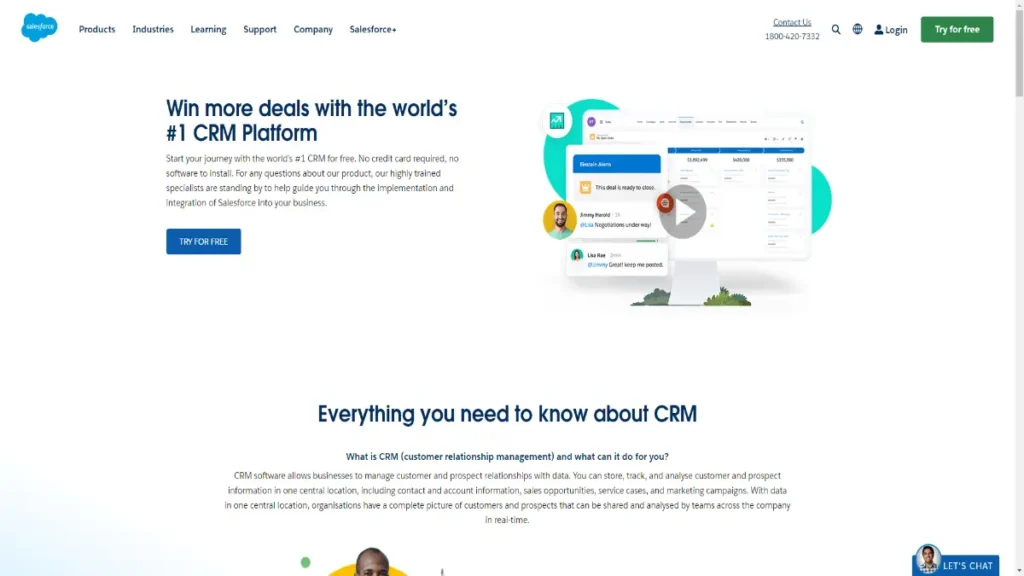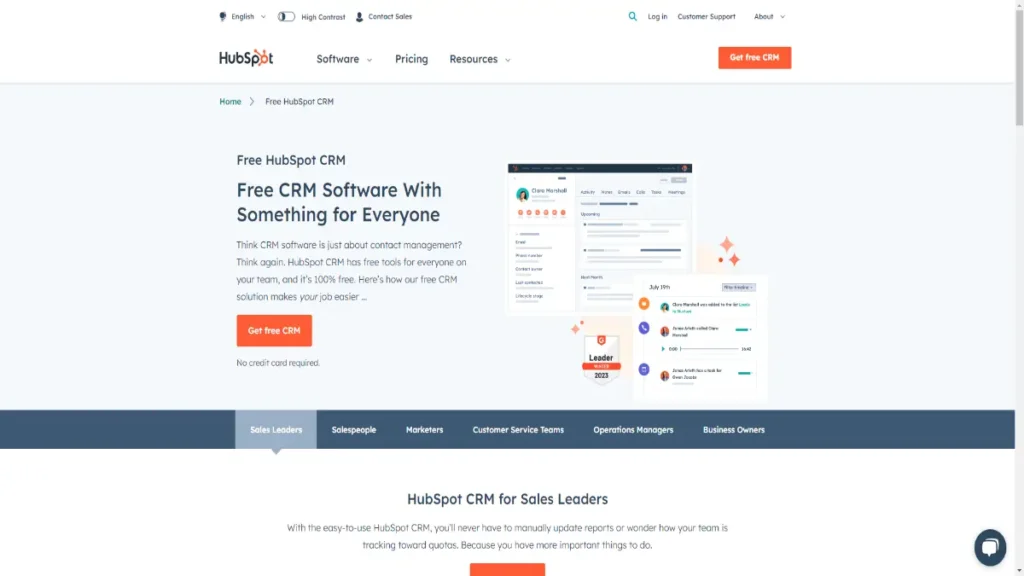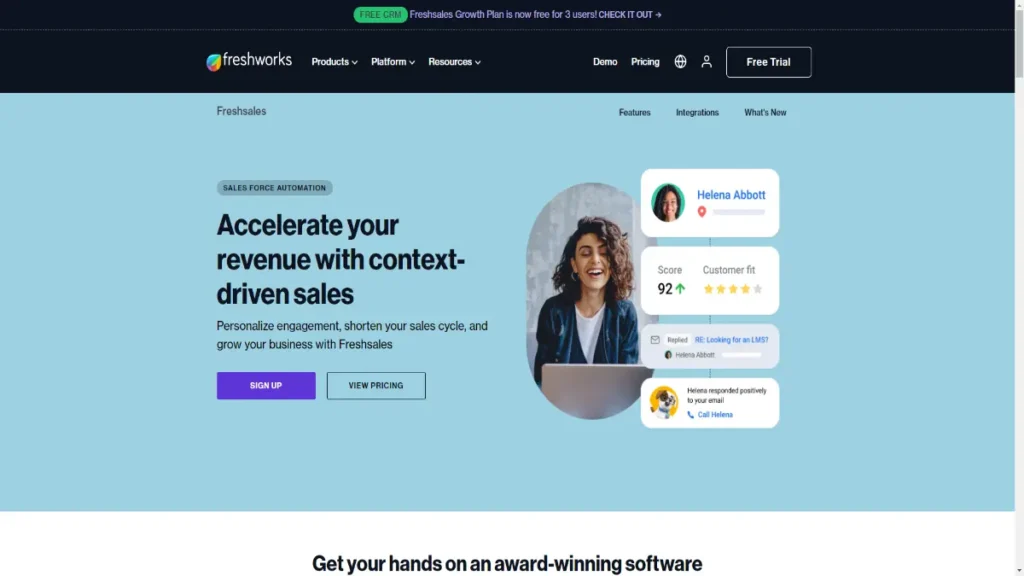Customer relationship management (CRM) is an essential component of any eCommerce business. In today’s digital age, customers expect personalized experiences and tailored recommendations that meet their unique needs. A strong CRM for ecommerce can help businesses achieve both of these objectives by enhancing their ability to capture customer data, analyze it in real time, and execute targeted marketing campaigns.
One of the key benefits of implementing a CRM for ecommerce is the ability to collect and store customer data in a centralized location. This includes information such as customer demographics, purchase history, browsing behavior, and social media activity. By consolidating this data, businesses can gain a 360-degree view of their customers and use this insight to personalize their marketing strategies.
Table of Contents
The next step is to analyze the data using artificial intelligence (AI) and machine learning algorithms. These technologies allow businesses to identify patterns and trends in customer behavior, predict future buying habits, and create highly-specific customer segments. With this information, businesses can send targeted messages and offers that are relevant to each individual customer.
However, simply collecting and analyzing customer data is not enough. The insights derived from the data must be put into action through targeted marketing campaigns. This can include personalized email marketing, retargeting ads, and social media campaigns. By delivering highly-relevant content to customers, businesses can increase engagement, loyalty, and ultimately, sales.
Benefits of CRM for Ecommerce
Implementing a CRM system for your ecommerce business can yield several benefits, including
Centralized customer data management
A CRM system allows you to store all your customer data in one central location, making it easier to manage and access customer information.
Improved customer segmentation
With a CRM system, you can segment your customers based on various criteria such as past purchases, browsing history, demographics, etc. This enables you to create targeted marketing campaigns that are more effective at converting customers.
Better customer engagement
A CRM system can help you engage with your customers more effectively by providing you with insights into their behavior, interests, and preferences. This enables you to personalize your communication with customers and provide them with relevant offers and recommendations.
Automated sales processes
A CRM system can automate several aspects of your sales process, such as lead nurturing and follow-up, which can save you time and improve sales efficiency.
Increased sales revenue
By improving customer engagement, targeting marketing efforts, and streamlining sales processes, a CRM system can help drive increased sales revenue.
Top CRM Platforms for Ecommerce
Here are some of the top CRM platforms for ecommerce businesses:
Zoho CRM for Ecommerce
Zoho CRM is a cloud-based CRM solution that offers a range of features for managing customer relationships. Here are some unique features of Zoho CRM for e-commerce:

- Offers a comprehensive set of features to manage sales and customer interactions for e-commerce businesses.
- Provides integration with popular e-commerce platforms like Shopify, WooCommerce, and Magento.
- Enables businesses to track customer behavior, segment customers based on purchasing patterns, and run targeted email campaigns.
- Offers customizable dashboards, reports, and analytics to track sales performance and customer engagement.
Salesforce CRM for Ecommerce
Salesforce CRM is a leading cloud-based CRM platform that offers a wide range of features for managing customer relationships. Here are some unique features of Salesforce CRM for e-commerce:

- Offers a robust platform to manage customer relationships across multiple channels, including web, mobile, social, and email.
- Provides integration with popular e-commerce platforms like Magento, Shopify, and BigCommerce.
- Offers AI-powered marketing automation tools, such as predictive analytics and personalized recommendations.
- Enables businesses to streamline order management, inventory tracking, and fulfillment processes.
HubSpot CRM for Ecommerce
HubSpot CRM is a free, cloud-based CRM platform that offers several features for managing customer relationships. Here are some unique features of HubSpot CRM for e-commerce:

- Offers a user-friendly interface and a wide range of features to manage customer relationships for e-commerce businesses.
- Provides integration with popular e-commerce platforms like Shopify, WooCommerce, and Magento.
- Offers marketing automation tools, such as email marketing, social media management, and lead nurturing.
- Provides detailed reporting and analytics to track sales performance and customer engagement.
Freshworks CRM for Ecommerce
Freshworks CRM is a cloud-based CRM platform that offers several features for managing customer relationships. Here are some unique features of Freshworks CRM for e-commerce:

- Offers a unified platform to manage customer relationships across multiple channels, including email, phone, chat, and social media.
- Provides integration with popular e-commerce platforms like Shopify and WooCommerce.
- Offers AI-powered lead scoring, automated workflows, and email campaigns.
- Provides real-time sales forecasting and customizable dashboards to track sales performance.
Conclusion
In conclusion, a CRM system can be a valuable tool for ecommerce businesses looking to streamline their customer data management, automate sales processes, and improve customer experiences. Each of the four CRM platforms we’ve discussed has its unique features and advantages, so it’s essential to evaluate your business needs and choose the CRM platform that best suits your requirements.
